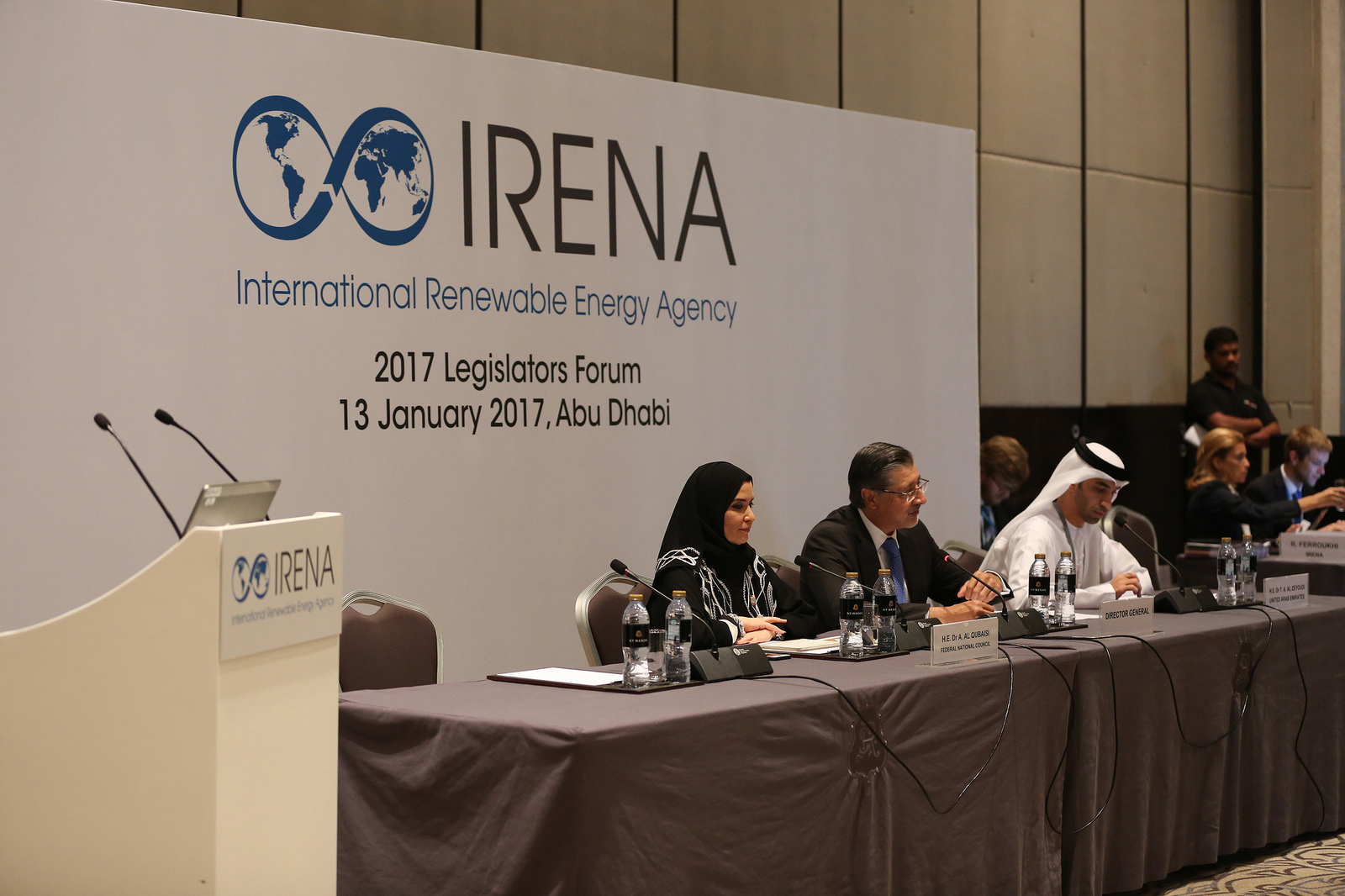
IRENA’s 7th Assembly, Abu Dhabi. Photo via IRENA.org
In 2016, the International Renewable Energy Association (IRENA), celebrated five monumental years of work. IRENA, an intergovernmental organization supporting countries in the transition to sustainable use of renewable energy, is headquartered in Abu Dhabi. Its formidable accomplishments last year include comprehensive reports (such as: ‘Innovation Outlook: Renewable Mini-grids,’ produced with support from HOMER Energy and TTA; the trajectory of solar in Africa; and the explosion of renewable energy jobs), as well as technology briefs, meetings with dignitaries from all over the world, global conferences (including the first ever IRENA Innovation Week and the third International Off-Grid Renewable Energy Conference in Kenya), and continued work on the G20 Toolkit of Voluntary Options for Renewable Energy Deployment.
New report details European RE potential
Now, the agency has started 2017 with momentum, living up to its mission of promoting “the widespread adoption and sustainable use of all forms of renewable energy, in the pursuit of sustainable development, energy access, energy security and low-carbon economic growth and prosperity.” The global agency now counts 158 member states plus the European Union, and dozens of other states are in process of joining.
The second weekend in January, IRENA opened the seventh session of its 2017 Assembly in Abu Dhabi, demonstrating that global energy leaders are dedicated to accelerating decarbonization. Setting the tone for acceleration, the agency released a new report at the assembly, which details renewable energy potential in Europe’s southeastern countries.
IRENA, ADFD, announce $44.5 million in funding awards
At the Assembly, IRENA announced that four developing countries’ renewable energy projects have been identified by Abu Dhabi Fund for Development (ADFD) and IRENA to receive USD 44.5 million in funding. The projects, mostly focusing on solar PV and microgrids, are in the Marshall Islands, Niger, Seychelles, and Solomon Islands.
Also at the conference, IRENA head Adnan Amin warned that although investment in renewables has increased dramatically in the last decade, “the rate of growth is not sufficient yet to meet the climate goals.”At the Assembly, IRENA released the 3rd edition of REthinking Energy, which puts the current share of renewable energies in the global energy mix of 18%. This number must double by 2030 to keep global warming under 2.0 degrees. To achieve this goal, “investments must be scaled up from some $305 billion in 2015 to an average of $900 billion per year between 2016 and 2030,” according to Amin.
On the bright side, the publication notes energy storage will be a game changer as options are becoming a growing variable in renewable energy generation. IRENA estimates that battery storage for electricity could increase from less than 1 GW today to 250 GW by 2030. The publication points out that investment in renewables had grown to a record USD 305 billion in 2015
“Renewables are gaining ground by nearly every measure. Accelerating the pace of the energy transition and expanding its scope beyond the power sector will not only reduce carbon emissions, it will improve lives, create jobs, achieve development goals, and ensure a cleaner and more prosperous future,” Amin concludes.
‘Democratic’ microgrids enable reliable, affordable access
Talking to the press at the concurrent Abu Dhabi Sustainability Week and World Future Energy Summit, Amin stresses that globally there are almost 10 million people working in the renewables industry, with China leading the way. Further, in the US there are 400,000 employed in the RE sector —including in many Republican-controlled states — compared with 85,000 in the coal industry, adding that “from a business perspective, renewable energy is a good investment.”
Amin explains that microgrids are the most democratic source of renewable energy, enabling reliable, affordable access to electricity anywhere in the world. With RE making bottom-line sense, Amin concludes, it is sound government policies worldwide that will propel the renewable energy future toward 2030 goals.
